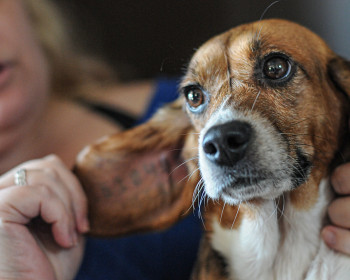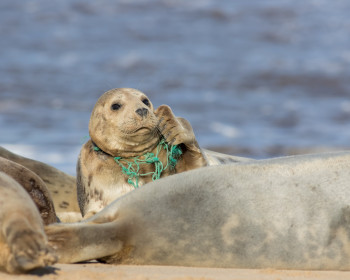CALS Ambassador Focuses on Helping Farmed Animals in Zimbabwe
Yvonne Gurira (’22, LLM, Zimbabwe) shares how she’s spearheading community outreach and stakeholder collaboration for her Global Ambassador Project.
Open gallery
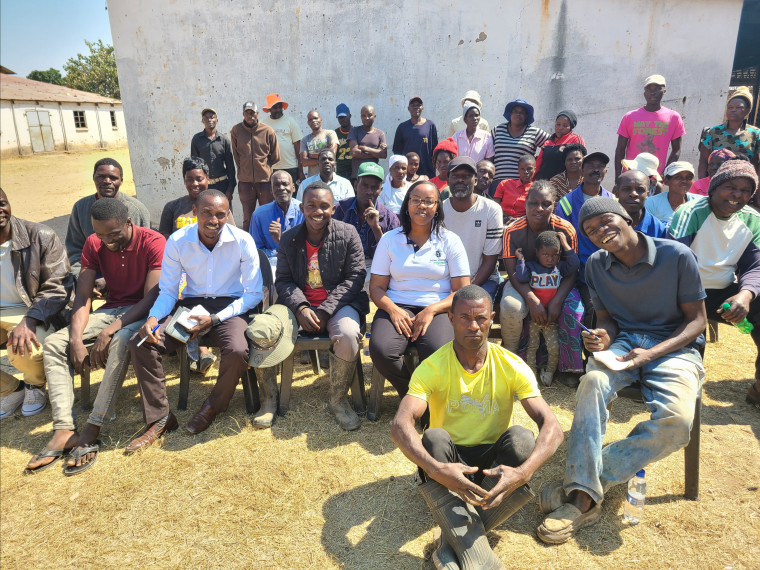
Yvonne Gurira (pictured center, white t-shirt) engaged in community outreach
Agriculture is the backbone of Zimbabwe’s economy. Zimbabwe is a landlocked country located in Southern Africa with a total land area of over 39 million hectares, with 33.3 million hectares used for agricultural purposes. Zimbabwe has a human population of 16.67 million people, most of whom live in rural areas and whose livelihoods depend on agriculture. As the main source of livelihood for most of the population, the performance of agriculture is a key determinant of rural livelihood resilience and poverty levels.
The importance of livestock in rural livelihoods lies in the provision of food (meat, eggs), manure, and draught power. Despite the importance of agriculture to the lives of Zimbabweans, our existing farmed animal welfare laws are not well-known and are not readily accessible. Farming takes place in remote and marginalized communities. Furthermore, farmed animal laws are grossly under enforced and interpreted in a way that is not in the animals’ best interests.
Community Outreach
In light of the need to raise awareness about farmed animals protections, I have dedicated my Global Ambassador Project to conducting outreach programs in six different communities. By educating critical stakeholders, such as farmers, government officials, and workers on the laws that impact animals, my efforts are helping to alleviate the suffering of animals and enhancing their interests.
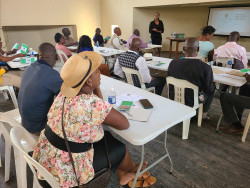
Additionally, it is by increasing public awareness around these outdated laws that I hope to create groundswells of support for amending them.
Stakeholder Engagement and Collaboration
As collaborating with relevant stakeholders is key to improving protections for farmed animals in Zimbabwe, Animal Advocates International (AAI), the nonprofit organization I founded following my studies at Lewis & Clark Law School, recently signed a Memorandum of Understanding with the Ministry of Lands, Agriculture, Fisheries, Water, and Rural Development (the Ministry) in June 2023.
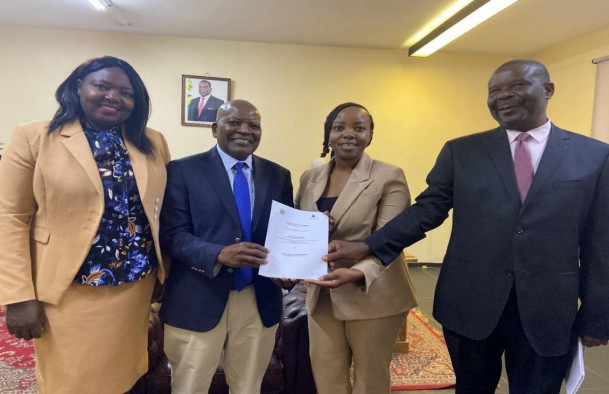
Stakeholder collaboration is the process of working with organizations and relevant sectors with an interest or influence in a certain project. Through AAI’s partnership with the Ministry, we aim to improve animal welfare and educate stakeholders about animal cruelty, animal welfare standards, and laws impacting animals in agriculture.
One of the fundamental benefits of stakeholder collaboration is speeding up the implementation or closure of relevant projects. When stakeholders collaborate, they form a stronger voice. Partnerships also speed up implementation. Stakeholder collaboration will result in quality project deliverables as it helps in the early resolution of issues. Here, AAI’s collaboration with the Ministry is of paramount importance considering that the Ministry is the highest authority on agricultural matters in Zimbabwe.
For instance, the Ministry is currently implementing National Development Strategy 1, which is aimed at improving farmer livelihoods by supporting free-range poultry producers. Such an initiative would also improve the welfare of chickens, as they will be provided more space to express normal behaviors.
In addition, obtaining valuable support is another benefit of stakeholder engagement and collaboration. Organizations proactively consider the needs and desires of anyone who has a stake in their organization, which can foster connections, trust, confidence, and buy-in for key initiatives. By building trust and confidence in AAI’s activities the MoU with the Ministry facilitates joint efforts for the overall benefit of captive farmed animals.
Furthermore, my collaboration with the Ministry of Agriculture will ensure the smooth process of obtaining stakeholders for training as the Ministry can simply avail relevant stakeholders. Collaboration also enhances discovering risks and issues earlier in a project and improves ideas and approaches to projects.
Law without enforcement is just as good as no law at all. As such, farmed animal legislation should be known by everyone, and applied in practice for the benefit of the animals.
Plant-Based Agriculture
As the final component to my Global Ambassador Project, and to promote plant-based agriculture and sustainable food systems, I will distribute seeds for planting beans to 6 farmers who will transition from animal to plant-based agriculture. Through this community outreach and support, I hope to encourage farmers to recognize that there are alternatives to a livelihood that depends upon the farming of animals.

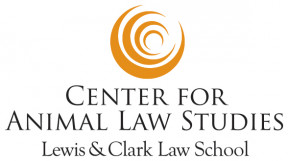
More Center for Animal Law Studies Stories
Center for Animal Law Studies is located in Wood Hall on the Law Campus.
MSC: 51
email cals@lclark.edu
voice 503-768-6960
Center for Animal Law Studies
Lewis & Clark Law School
10101 S. Terwilliger Boulevard MSC 51
Portland OR 97219
